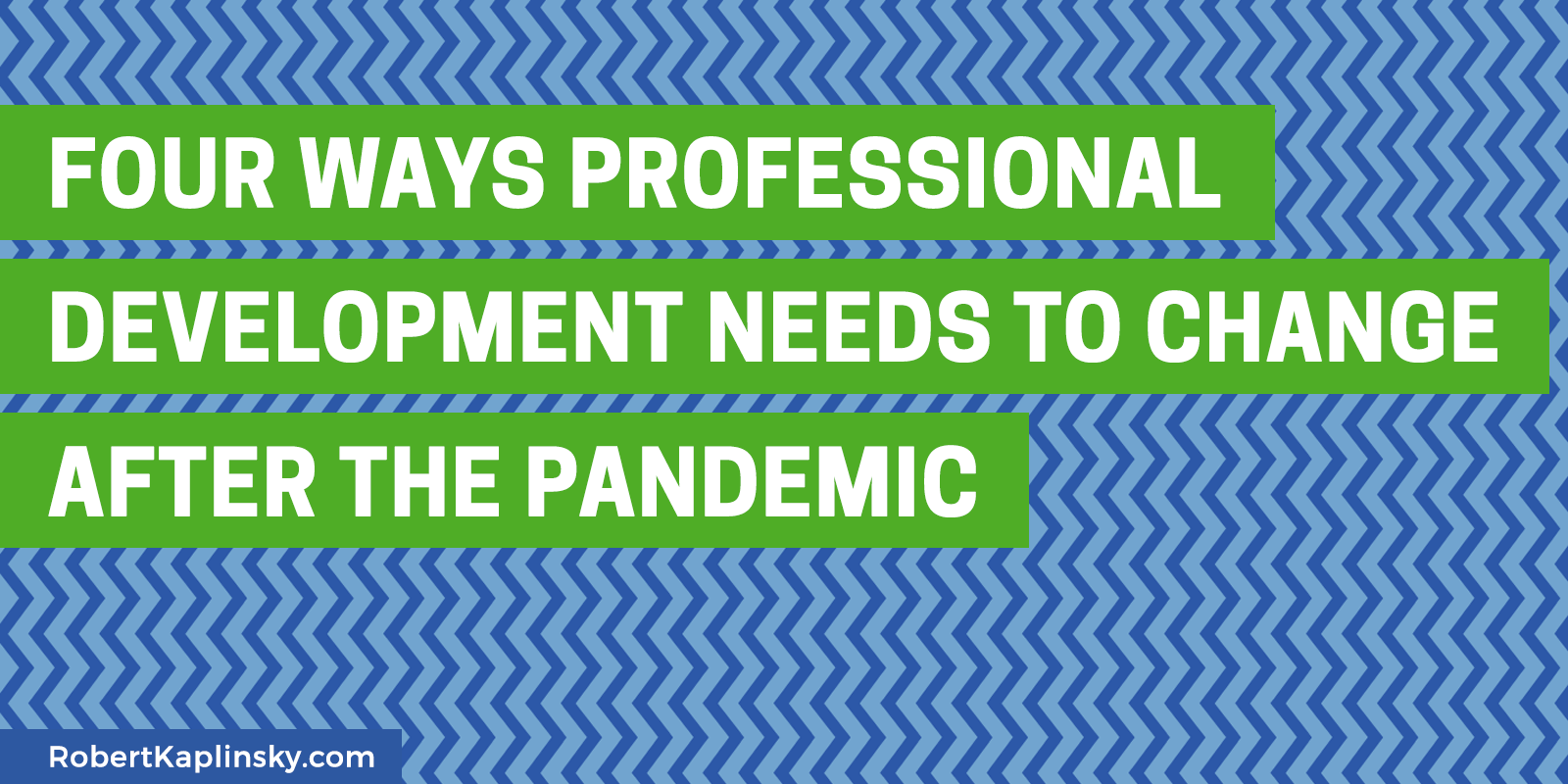One of my favorite thought experiments is “What if __________________ didn’t exist today and was invented tomorrow? What would be different than it is now?” As an example, imagine that your content standards had never been invented. Tomorrow a group of people will start creating them. What are the odds that they’d end up with the exact same standards?
There might be new standards, ones that change grade levels, and even standards that disappear. This thought experiment makes it easier to examine what exists because it’s the best way to do things from what happens because that’s what we’ve always done.
Similarly, I want to share my thinking on the question: “What if professional development didn’t exist today and was invented tomorrow? What would be different than it is now?”
Here are four problems I see with traditional professional development that I hope we would handle differently after the pandemic:
- We differentiate instruction for students but rarely do the same for teacher professional development.
- Professional development that only happens during the school day reduces instructional time and causes substitute headaches.
- It can be very expensive.
- It’s unrealistic to expect teachers to implement what they learned after a single session.
Asynchronous online workshops like those on Grassroots Workshops can resolve these four problems and should be an option for all educators. These workshops are not to be confused with webinars that can feel like hour-long lectures. Instead, asynchronous online workshops are pre-recorded lessons teachers can complete at their own pace. They feel more like bringing the in-person workshop experience online so that it’s a combination of watching short videos, reflecting on ideas, and having the flexibility to implement what they learn and come back for more.
In full disclosure, I’m the founder and president of Grassroots Workshops. I created the company in 2016 because I believe that professional development should meet teachers’ needs, not the other way around.
So here are my thoughts on the four issues, and what we can do about them.
In person professional development frequently frustrates teachers because they may already know significant portions of the content, but have no way to focus on the parts they’re interested in. Instead, they have to sit through it all. Asynchronous online workshops from Grassroots Workshops resolve this issue by structuring lessons using questions teachers might ask such as “How do I prepare for a lesson?” or “How do I facilitate classroom discussions?” for the lesson names of all their lessons. This makes it easier for teachers to find content they like, while still allowing them to go all the way through like a novel if they prefer.
Additionally, with in-person workshops or even live online workshops, it’s challenging to simultaneously provide examples at multiple grade levels or subjects. However, with asynchronous online workshops, instructors can share a strategy, and then provide a variety of examples so that teachers can choose the ones that are relevant to them.
Asynchronous online workshops eliminate this problem. They allow teachers to learn when it’s convenient for them, whether it’s during a prep period, evening, weekends, or while waiting around. Breaking longer content (such as webinars) into many shorter videos makes the learning more palatable and easier to digest.
This doesn’t prohibit groups of teachers from learning together. Instead, they now have the choice of learning the content simultaneously or taking a hybrid approach (like a book study) where they do some learning on their own and spend more time together discussing and implementing what they learned.
However, for the price of sending just one person to a conference, schools could register dozens of teachers for asynchronous online workshops. The cost savings don’t come from reduced professional development quality but rather from all the related expenses that no longer need to be paid.
This is especially important as many districts have tight budgets and may be unaware of asynchronous online workshops’ affordability.

